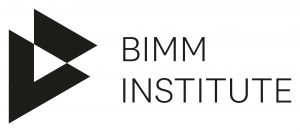Jane Savidge Visits BIMM Institute for an Exclusive Masterclass
At BIMM Institute Brighton, we were fortunate to host a Masterclass with Jane Savidge. Jane is a legendary PR agent whose work throughout the 90s helped shape what we know as Britpop. Jane was interviewed by BIMM Institute Brighton lecturer James Kendall who picked her brains about working in PR and the importance of band image.
Jane, who co-founded PR company Savage & Best, is widely credited as one of the main instigators of the Britpop movement, which reached its height of popularity during the 1990s. Jane’s company represented Suede, Pulp, The Verve, Elastica, Ultrasound, Echobelly, The Auteurs, Black Box Recorder, and many more.
Jane’s first book, Lunch With The Wild Frontiers: A History Of Britpop And Excess in 13 and a 1/2 Chapters, was published by Jawbone in May 2019. Classic Pop Magazine awarded the book five stars heralding it as “an exhilarating and hilarious exposé of the scene, recounted in a gloriously gossipy style with a vibrancy that sees it begging to be adapted for the screen. It’s an addictive read which lifts the lid on the stories that hit the headlines as well as a fair few that were deliberately concealed. By far the finest book on Britpop to date.”
Other work includes writing sleeve notes to accompany all eight Eurythmics albums and sleeve notes for other artists, including Suede, James, Ride and Curve.
Our BIMM Masterclass with
Jane Savidge:
After an introduction to Jane, James asked her about how she got her start in the business:
“I was in university studying philosophy”, says Jane. “We started doing American catalogues with the first PR company that I founded. At the time, I was doing PR for my band as well as some other smaller bands. I got approached by Virgin Records, which I left when I was 24 years old, to write poetry but quickly got another job as a journalist. During that time, I discovered a band called Curve, one of the best bands that I’ve heard.”
Jane continued: “Me and John Best were looking after a lot of bands. We had an office in Camden and got all the smaller bands to keep coming in. We started interviewing them in nearby pubs, which slowly emerged into the Britpop scene.”
James then asked Jane about her successful approach to PR: “My approach is more that I think the bands I’m working with are the best that ever existed. That is a matter of belief, but it always gave me a mindset that they are made for success and treated like they were.”
“It’s about building a story and thinking like a journalist when you work with bands.”
Jane spoke about what advice she’d give to someone wanting to get into PR: “Many things haven’t changed. It’s about building a story and thinking like a journalist when you work with bands. Why would other journalists bother to pick up the pen and write about them, what’s their USP and what’s their message? That’s the advice I’d give if someone’s thinking about getting into PR.”
Answering Student Questions:
The floor was then opened to students who were very eager to ask Jane a multitude of questions:
What advice would you give to other upcoming bands these days?
Jane: “The internet is so much more important these days for upcoming bands. I always liked repetitive songs, and it’s still good to have catchy lyrics, but the advice for new bands today is complex as there are so many doing it now. Try to be different. Try to write lyrics that surprise people.”
Is image important for bands?
Jane: “I think the image is more important than anything else for a band. If you listen to a great band’s lyrics, it tells the stories about the band or their members, reflecting their image in their music. I often enjoy bands if they just dress or act differently, even though their music is usually not that good.”
How is A&R different today than it was in the ’90s?
Jane: “Today, much more legal work is involved, and people in A&R want to see a specific success rate before approaching bands/artists. Back in the day when there was no internet, we had to have more faith in the people and the music they were creating. There wasn’t the following we see today on bands’ socials.”
How do you write a book?
Jane: “The first one I published in 2019. I always have written, and at some point, I just wrote down all the stories I kept telling people and submitted it to a publisher, but they told me that I needed more of an arc that I didn’t know.
“When I started writing I knew that no one was particularly interested in me but I knew I was a good writer. I know that, so I would just lay out all my little stories that happened in different periods and just connect the dots in the end. That’s a great way of writing that I discovered for myself. I enjoy writing when I’m doing it, but sometimes it’s hard just to start, and you procrastinate instead.”
Thanks for all of your incredible insight, Jane – you’re a legend! Check out more from our fantastic, exclusive BIMM Masterclasses here.


